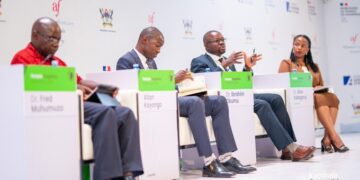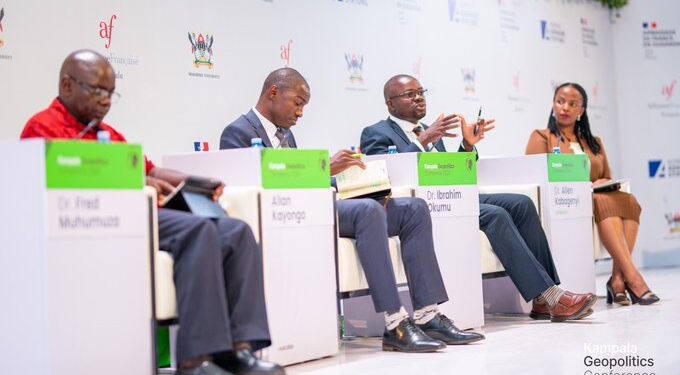“We are no longer in the 1960s when Global geopolitics were driven by the Washington consensus,” observed Dr. Ibrahim Okumu, an Associate Professor at the Makerere University School of Economics.
He was referring to how emerging powers are challenging the U.S.-led liberal world and how the bipolar world of the Cold War has given way to a multipolar world that no longer relies on ideology and military power but on economics and technology.
“The emerging powers have allowed for expanding global partnerships for development. For instance, we see China and Turkey both coming on board to fund the Ugandan Standard Gauge Railway (SGR) instead of formally depending on only traditional powers,” noted Dr. Okumu while speaking during the Kampala Geopolitics Conference held at Makerere University on October 23-24, 2024.
An emerging power or rising power is a sovereign state or union of states with significant rising influence in global affairs. America has limited ability to influence the trajectory of these emerging powers, which include Argentina, Brazil, India, Indonesia, Mexico, Nigeria, Saudi Arabia, South Africa, Thailand, and Türkiye.
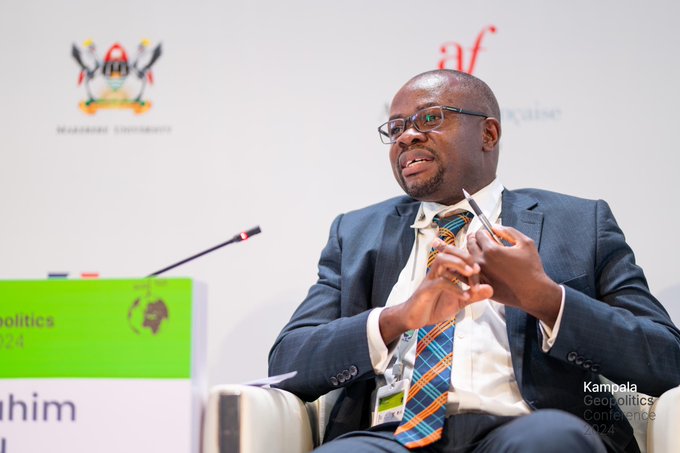
Dr. Okumu, who was part of a panel “Navigating Africa’s Evolving Economic Partnerships with Emerging and Traditional Powers”, said the success of the smart city in Rwanda is partly accounted for by the collaboration with China.
According to him, this has been possible with the transfer of traffic technology.
“As of 1990, Uganda’s exports to United Arab Emirates (UAE) were not even 1%, but as we speak today, we see the exports rising to 27% of exports to UAE. This is only because of the emergence of new global markets.”
He said the days of the British and USA competition for African resources are in the past and today, nations like India and China are scrambling for African resources through various national partnerships.
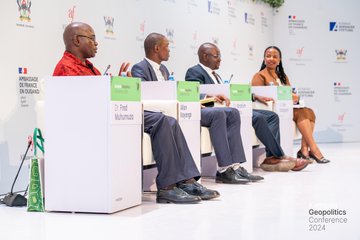
“In as much as the Chinese are participating in resource competition in Africa, are African countries able to transfer the benefits of partnerships with emerging powers to the locals?” wondered Dr Okumu in light of the U.S.-China competition in Africa.
He said previously, donor funds came to Africa with strict terms, but today, African nations can negotiate and properly utilize donor funds from emerging powers to the benefit of their development agendas.
Leveraging technology
Dr. Fred Muhumuza, a development economist, tipped African states to utilize the technologies put in place by emerging powers to steer economic development.
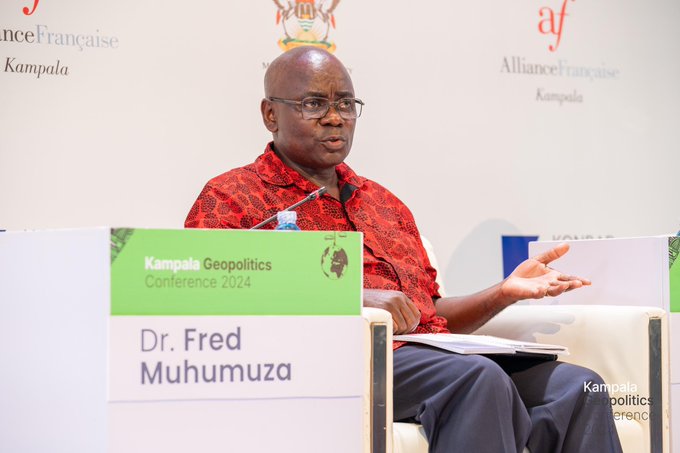
“When you look at the emerging powers, one must look at what technologies they have put in place to aid development, such as 5G network, before we benchmark for our development.”
He said many times, African countries want to copy and paste from emerging powers like India and China.
“Today, China can afford to build an SGR, but is it right for Uganda to copy and paste the same? Is it feasible? Is it necessary? And to what end is such a policy? “Today, instead of visiting a library, I can read all the journals I need online. This is one digitally forward invention I would recommend for African Universities.”

He said the digitization of University libraries, for example, would transform the need for large spaces for physical libraries.
“Today, you can get a degree from Harvard without going to Harvard. Makerere should be able to offer degrees to students in Qatar without physical classes. This is the digital transformation I look forward to for African states.”
Africa must reposition itself
Allan Kayongo, an economist and development planner, said Africa must reposition itself to reap big from its partnerships with the emerging powers.
“Africa, being the darling of the new and emerging powers, must reposition itself given the new BRICS currency,” stated Kayongo.
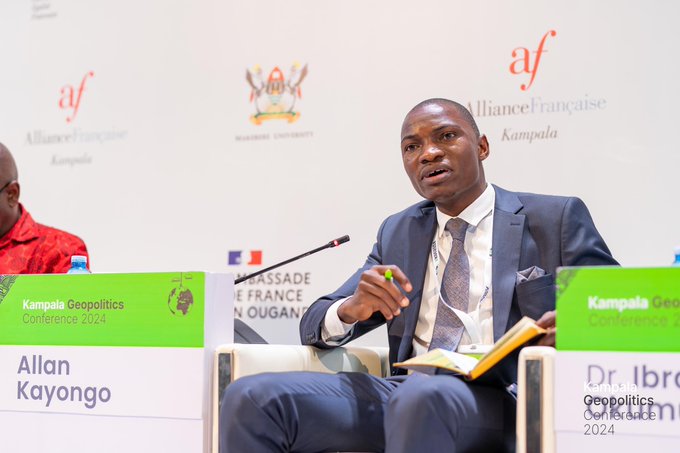
This week, Uganda became the first East African country to join BRICS, an intergovernmental organization comprising Brazil, Russia, India, China, South Africa, Iran, Egypt, Ethiopia, and the United Arab Emirates, as part of the 13 new partner countries. Other new African partners included Algeria and Nigeria.
According to Kayongo, Africa has the leverage of a diversified pool of partners to utilize for its development agenda. BRICS’ GDP alone is significantly higher than the G7 countries. The BRICS countries account for 35% of global GDP, while the G7 only represents 30%, according to The Globalist.
According to Kayongo, developed economies rely more on direct taxes than Africa, which relies more on indirect taxes.
“African nations should try to leverage the growing private sector and their tax base, which would grow through foreign direct investments from the old and new global powers,” he added.
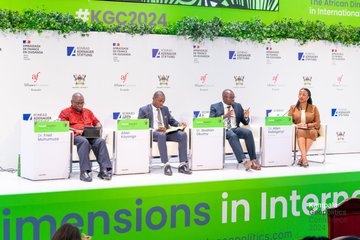
In their April 2024 “Emerging Powers and the Future of American Statecraft” report, Christopher S. Chivvis (Senior Fellow and Director, American Statecraft Program) and Beatrix Geaghan‑Breiner (Research Analyst, American Statecraft Program) cited ten emerging powers in Asia, Africa, Latin America, and the Middle East which are growing in their geopolitical weight and diplomatic ambition.
The report says these new global actors make up more than half of the Global South’s gross domestic product (GDP) and nearly half of its population, have fast-growing markets that are quickly climbing the ranks of the largest economies, and are almost certain to have an even greater weight on the global stage in the next two decades.
“Some economists predict that by 2050, Brazil, India, Indonesia, and Mexico will be among the seven largest economies in the world. Some of the ten emerging powers are projected to undergo two- or threefold growth between now and 2050, as well as significant population increases,” notes the report.
